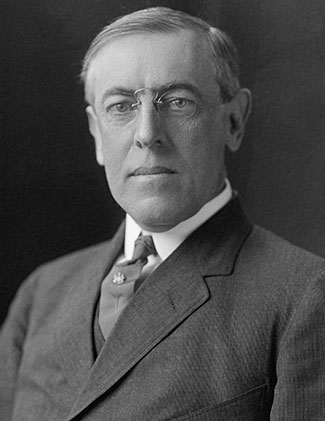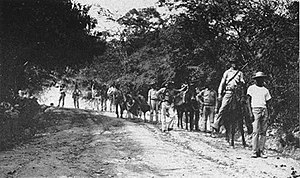Welcome to DU!
The truly grassroots left-of-center political community where regular people, not algorithms, drive the discussions and set the standards.
Join the community:
Create a free account
Support DU (and get rid of ads!):
Become a Star Member
Latest Breaking News
General Discussion
The DU Lounge
All Forums
Issue Forums
Culture Forums
Alliance Forums
Region Forums
Support Forums
Help & Search
Foreign Affairs
Related: About this forumA Subtle Alchemy: US Finds it easier to Occupy Abroad than to Withdraw
http://www.juancole.com/2014/06/alchemy-abroad-withdraw.htmlA Subtle Alchemy: US Finds it easier to Occupy Abroad than to Withdraw
By contributors | Jun. 28, 2014
By Alan McPherson
In 2003, former secretary of defense Donald Rumsfeld infamously foresaw victory in Afghanistan and Iraq as demanding a “long, hard slog” and listed a multitude of unanswered questions. Over a decade later, as President Obama (slowly) fulfills his promise to pull all US troops from Afghanistan, a different set of questions emerges. Which Afghans can coalition troops trust to replace them? Will withdrawal lead to even more corruption in the Hamid Karzai government or that of his successor? Has the return of sectarian violence in Iraq been inevitable?
One assumes that the difficulties associated with withdrawing an occupation force are less daunting than those accompanying invasion. Yet the history of US occupations in Latin America demonstrates just the opposite: invasion itself raises the standards of political behavior in invaded countries to stratospheric heights, thus guaranteeing failure and disillusion when the time comes for withdrawal.

A century ago, the Woodrow Wilson administration promised non-intervention in Latin America, but then, in response to World War I, lengthened the already existing US occupation on Nicaragua and started two new occupations, in 1915 in Haiti and in 1916 in the neighboring Dominican Republic.
~snip~
Much like George W. Bush and his administration did in the Middle East, privately Wilson and his aides shared a vision of a Caribbean area remade in their own image, one where violence as a political tool would be abandoned, political parties would offer programs rather than follow strongmen, and the military would be national and apolitical. Wilson wanted, he said, “orderly processes of just government based upon law.” “The Wilson doctrine is aimed at the professional revolutionists, the corrupting concessionaires, and the corrupt dictators in Latin America,” he added. “It is a bold doctrine and a radical doctrine.”
--
http://en.wikipedia.org/wiki/Banana_wars

United States Marines and a Haitian guide patrolling the jungle in 1915 during the Battle of Fort Dipitie
Cuba (1898–1922)
Cuban Campaign
Cuban Pacification
Negro Rebellion
Sugar Intervention
Puerto Rico (1898)
Puerto Rican Campaign
Honduras (1903–1925)
Nicaragua (1912–1933)
Granada
Coyotepe Hill
La Paz Centro
Ocotal
San Fernando
Telpaneca
1st Las Cruces
2nd Las Cruces
Quilali
La Flor
Achuapa
Agua Carta
El Sauce
Mexico (1914)
Veracruz
Haiti (1915–1934)
Fort Dipitie
Fort Rivière
1st Port au Prince
2nd Port au Prince
Dominican Republic (1916–1924)
Santo Domingo
Guayacanas
San Francisco de Macoris
InfoView thread info, including edit history
TrashPut this thread in your Trash Can (My DU » Trash Can)
BookmarkAdd this thread to your Bookmarks (My DU » Bookmarks)
1 replies, 424 views
ShareGet links to this post and/or share on social media
AlertAlert this post for a rule violation
PowersThere are no powers you can use on this post
EditCannot edit other people's posts
ReplyReply to this post
EditCannot edit other people's posts
Rec (1)
ReplyReply to this post
1 replies
 = new reply since forum marked as read
Highlight:
NoneDon't highlight anything
5 newestHighlight 5 most recent replies
= new reply since forum marked as read
Highlight:
NoneDon't highlight anything
5 newestHighlight 5 most recent replies
A Subtle Alchemy: US Finds it easier to Occupy Abroad than to Withdraw (Original Post)
unhappycamper
Jun 2014
OP
rock
(13,218 posts)1. I've already mentioned what the dead easy, simple way is to withdraw
Don't invade. What, you've already invaded? Schmuck! You don't deserve help in withdrawing.